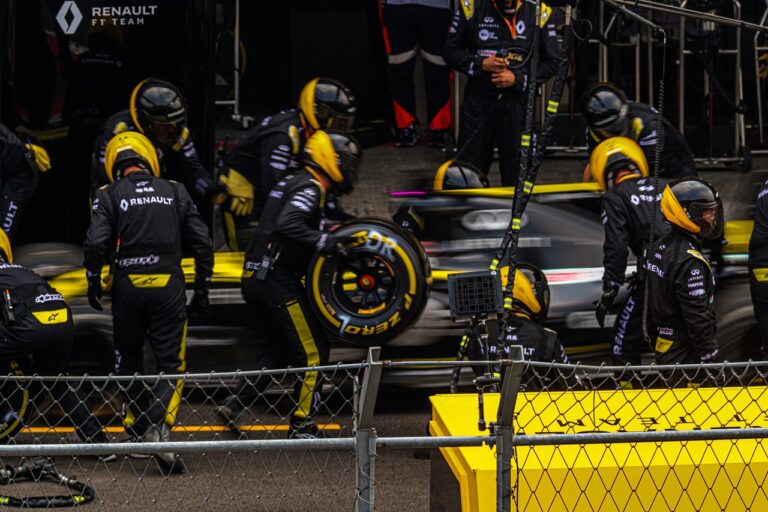How Blockchain is Streamlining Parts Logistics
99exch.com login, laser247. com, yolo247 login:Blockchain technology has been making waves in various industries, offering innovative solutions to age-old challenges. One such industry where blockchain is proving to be a game-changer is parts logistics. Let’s dive into how blockchain is streamlining parts logistics and revolutionizing the way businesses manage their supply chains.
What is Parts Logistics?
Before we delve into how blockchain is transforming parts logistics, let’s first understand what parts logistics is all about. Parts logistics refer to the process of managing and moving spare parts and components within a supply chain to ensure that they reach their intended destination on time. This process is crucial for industries like manufacturing, automotive, aerospace, and others that rely on a seamless flow of parts to maintain operations and minimize downtime.
Challenges in Traditional Parts Logistics
Traditionally, parts logistics have been plagued by several challenges that hinder efficiency and transparency in the supply chain. Some of the common issues include:
1. Lack of real-time visibility: Traditional supply chains often suffer from a lack of real-time visibility into the movement of parts, leading to delays and disruptions.
2. Manual processes: Many parts logistics operations rely on manual processes for tracking inventory, orders, and shipments, which are prone to errors and inefficiencies.
3. High costs: Managing parts logistics can be costly due to inefficiencies in the supply chain, such as excess inventory, long lead times, and high transportation costs.
4. Counterfeit parts: The risk of counterfeit parts entering the supply chain is a significant concern, leading to potential safety hazards and reputation damage for businesses.
How Blockchain is Revolutionizing Parts Logistics
Blockchain technology offers a solution to the challenges faced by traditional parts logistics by providing a secure, transparent, and efficient way to manage supply chains. Here’s how blockchain is streamlining parts logistics:
1. Enhanced traceability: Blockchain provides a decentralized and immutable ledger that enables real-time tracking of parts from the manufacturer to the end customer. Each part is assigned a unique digital identity on the blockchain, making it easy to trace its origin, location, and other relevant information.
2. Improved transparency: With blockchain, all stakeholders in the supply chain can access a transparent and tamper-proof record of parts transactions. This transparency enhances trust and accountability among partners, reducing the risk of fraud and counterfeit parts entering the supply chain.
3. Smart contracts: Blockchain enables the use of smart contracts, self-executing contracts with predefined rules and conditions. Smart contracts automate parts logistics processes, such as order management, payments, and warranties, reducing paperwork and streamlining operations.
4. Increased efficiency: By digitizing and automating parts logistics processes on the blockchain, businesses can eliminate manual tasks, reduce errors, and speed up transactions. This increased efficiency leads to cost savings and improved customer satisfaction.
5. Secure data sharing: Blockchain ensures secure and encrypted data sharing among supply chain partners, protecting sensitive information and preventing unauthorized access. This secure data sharing enhances collaboration and communication in the supply chain.
6. Anti-counterfeiting measures: Blockchain can be used to create a digital twin of each physical part, storing unique identifiers and authentication data on the blockchain. This helps in verifying the authenticity of parts and preventing the entry of counterfeit products into the supply chain.
Benefits of Blockchain in Parts Logistics
The adoption of blockchain technology in parts logistics offers several benefits to businesses, including:
1. Improved traceability and visibility: Blockchain provides real-time visibility into parts movements, enabling businesses to track their inventory, orders, and shipments with greater accuracy.
2. Enhanced transparency and trust: The transparency and immutability of blockchain transactions build trust among supply chain partners, leading to better collaboration and reduced disputes.
3. Cost savings: By streamlining parts logistics processes and reducing inefficiencies, blockchain helps businesses cut costs associated with inventory management, transportation, and manual paperwork.
4. Faster transactions: Blockchain’s decentralized and automated nature speeds up parts logistics transactions, enabling faster order processing, payments, and deliveries.
5. Reduced risks: Blockchain’s enhanced security and anti-counterfeiting measures reduce the risk of fraud, theft, and counterfeit parts entering the supply chain.
6. Compliance and regulatory benefits: Blockchain’s ability to store and validate data securely helps businesses comply with industry regulations and standards, enhancing auditability and accountability.
Overall, blockchain is transforming parts logistics by providing a digital infrastructure that enhances transparency, efficiency, and security in supply chain management. Businesses that adopt blockchain technology in their parts logistics operations can gain a competitive edge by improving customer service, reducing costs, and mitigating risks.
FAQs
1. How does blockchain ensure the authenticity of parts in the supply chain?
Blockchain creates a digital twin of each physical part by storing unique identifiers and authentication data on the blockchain. This helps in verifying the authenticity of parts and preventing the entry of counterfeit products into the supply chain.
2. How can blockchain streamline parts logistics processes?
Blockchain streamlines parts logistics processes through enhanced traceability, transparency, and efficiency. By digitizing and automating operations on the blockchain, businesses can track parts movements, automate transactions, and reduce manual tasks, leading to cost savings and improved customer satisfaction.
3. What are the key benefits of blockchain in parts logistics?
The key benefits of blockchain in parts logistics include improved traceability and visibility, enhanced transparency and trust, cost savings, faster transactions, reduced risks, and compliance and regulatory benefits. Blockchain technology offers a secure, transparent, and efficient way to manage supply chains, revolutionizing the way businesses handle parts logistics operations.
In conclusion, blockchain technology is revolutionizing parts logistics by providing innovative solutions to traditional challenges. Businesses that embrace blockchain in their supply chain operations can reap the benefits of enhanced traceability, transparency, and efficiency, leading to cost savings, improved customer satisfaction, and a competitive edge in the market.







